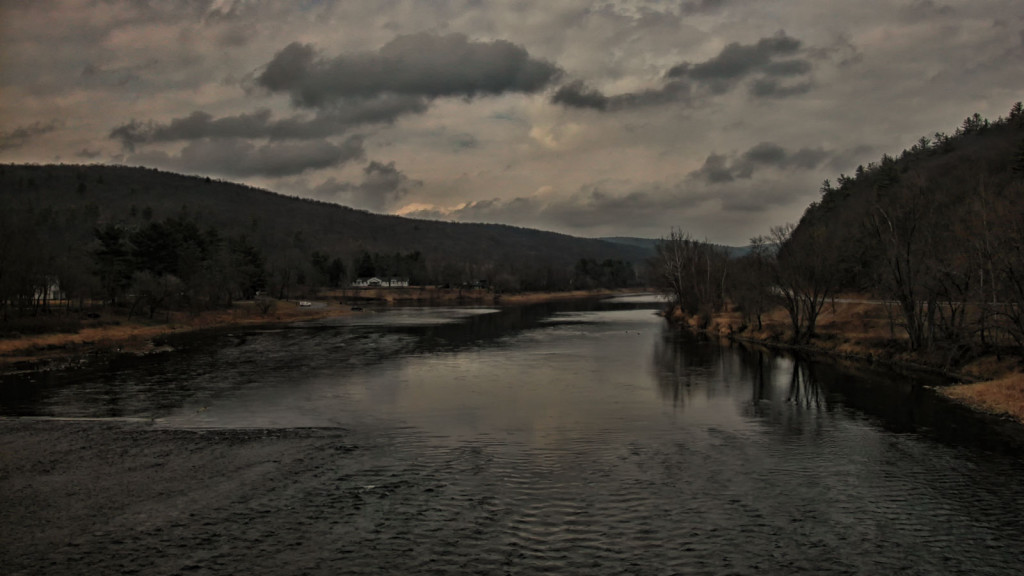The United States Department of Agriculture (USDA) Under Secretary for Natural Resources and Environment Ann Mills yesterday announced projects in Pennsylvania and New Jersey that will receive over $15 million to improve water quality in the Delaware River Watershed as part of the new Regional Conservation Partnership Program (RCPP).
RCPP focuses on public-private partnerships to enable private companies, local communities and other non-government partners a way to invest in conservation efforts to help keep our private land resilient and water clean.
Awarded funds will be dedicated to installing conservation practices and easements in northeastern Pennsylvania and New Jersey to accomplish a wide diversity of agricultural and natural resource goals such as improving water and soil quality, restoring fish and wildlife habitat and preserving working agricultural and forest lands.
In addition to USDA financial assistance funds, partners will expand upon conservation efforts of the Natural Resources Conservation Service (NRCS) by contributing funds and in-kind services such as outreach and technical assistance. According to partner Jim Baird, Mid-Atlantic Director of American Farmland Trust (AFT), “These funds will directly support AFT’s core focus, sustaining economically viable, well managed farmland for future generations.”
“Partners are seeing the value of conservation and investing in their future,” Mills said. “These partnerships are forging a new path for getting conservation on the ground and are providing opportunities for communities to have a voice and ownership in protecting and improving our natural resources. The Regional Conservation Partnership Program ushers in a new era of conservation, and we’re excited about the down-the-road benefits from this new Farm Bill program.”
The projects announced today include the following:
Delaware River Watershed Working Lands Conservation and Protection Partnership
Lead partner: American Farmland Trust
Lead States: Pennsylvania and New Jersey
USDA Funding: $13 million
To address water quality and quantity concerns partners will further the implementation of conservation systems through NRCS by offering financial and technical assistance to install conservation and restoration practices, as well as land protection easements. Private funding will encourage participation by some who prefer not to use government funding. Partners anticipate working with more than 600 farmers and forest landowners on 35,000 acres in this important region.
Productive Farms and Clean Streams for Berks and Chester Counties
Lead Partner: Stroud Water Research Center
Lead State: Pennsylvania
USDA Funding: $1.5 million
This partnership project will focus on improving water quality in Berks and Chester Counties by reducing nutrients and sediments in surface and groundwater and improving fish and wildlife habitat. Various methods to provide cost-effective conservation practices to farmers will be used to help address water quality, soil erosion, fish and wildlife habitat, and air quality.
Delaware Bay Soil and Water Quality Protection Initiative
Lead Partner: New Jersey Conservation Foundation
Lead State: New Jersey
USDA Funding: $700,000
The New Jersey Conservation Foundation (NJCF) will focus on protecting farm and forestland in the Delaware Bay area of New Jersey through easement acquisitions and by increasing participation in NRCS conservation programs. As more farmers implement conservation practices, land will be maintained and improved for future generations.
Nationally, more than 600 pre-proposals were submitted for RCPP in 2014. Of those, more than 200 were invited to submit full proposals. “With so many strong project proposals, the project selection process was extremely competitive. RCPP is a 5-year $1.2 billion USDA commitment; projects not selected in this first year may be eligible in subsequent years,” Mills said.
For more information on RCPP projects, visit www.nrcs.usda.gov.
The next announcement of program funding for fiscal year 2016 will be made later in the year.
To learn about technical and financial assistance available through conservation programs, visit www.nrcs.usda.gov/GetStarted or a local USDA service center.
